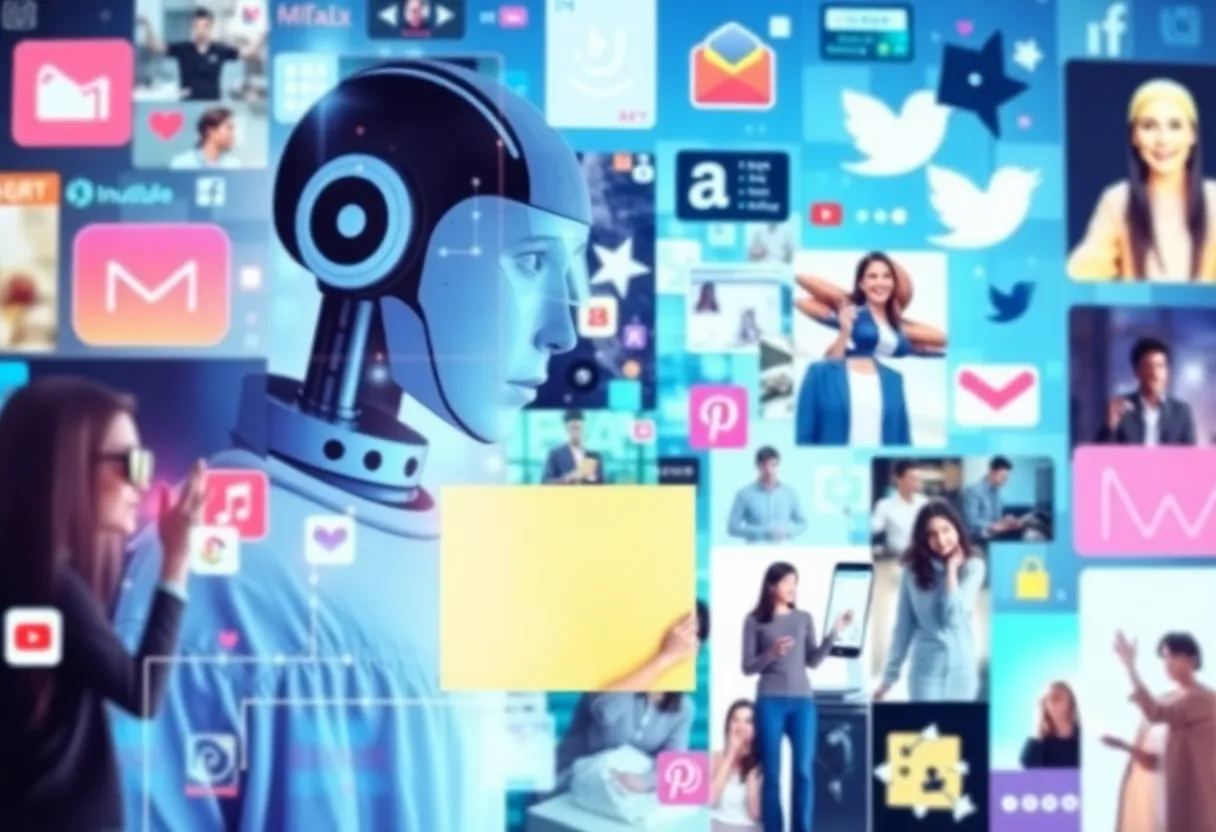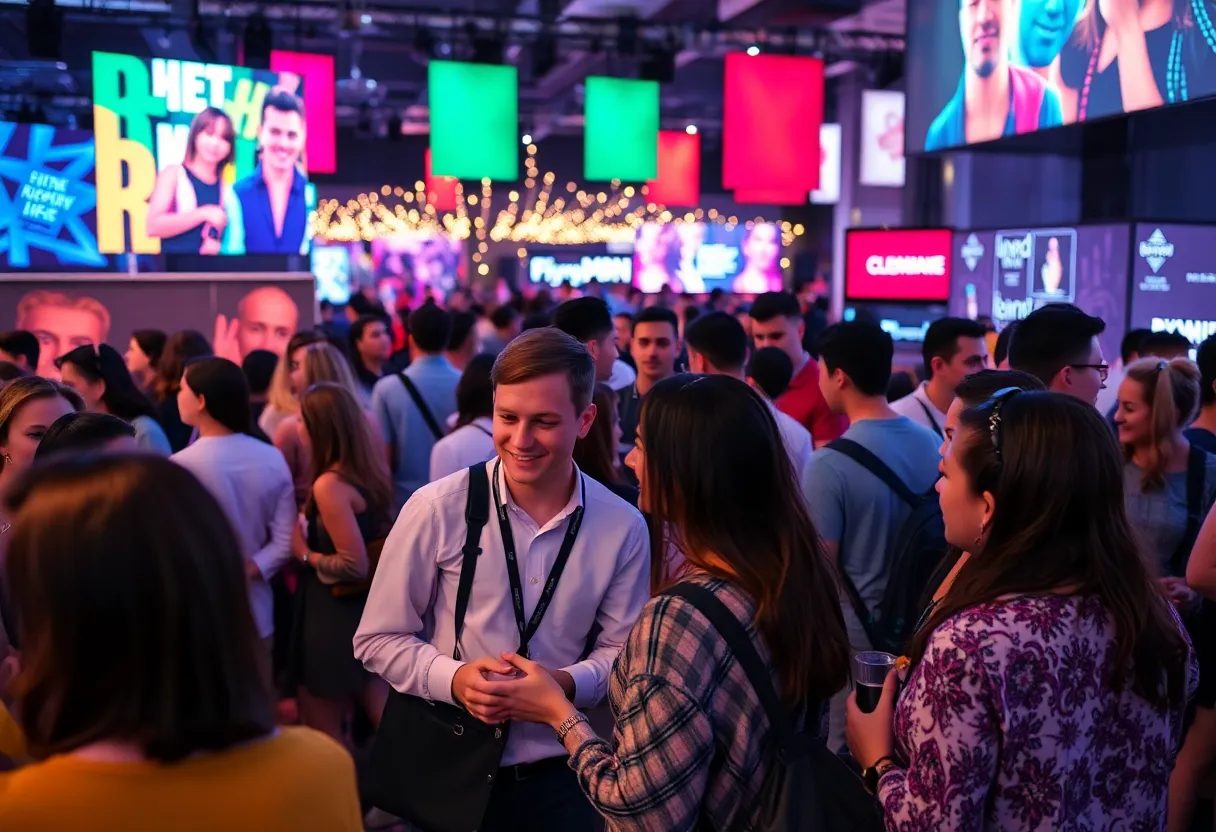News Summary
The Cannes Lions festival has showcased the significant impact of generative AI in marketing and advertising. As industry leaders discuss this transformative technology, the importance of authenticity and transparency becomes clear. With 76% of marketers utilizing AI tools, the emphasis is on balancing innovative strategies with ethical considerations, particularly in maintaining genuine consumer connections.
Generative AI Steals the Show at Cannes Lions
This week, marketing and advertising leaders have gathered in the sun-soaked south of France for the famous Cannes Lions festival. Amid the glitz and glamour, a hot topic has emerged: the role of generative AI in shaping visual content. As the industry grapples with the challenges and opportunities this technology presents, it’s clear that we’re on the brink of a significant transformation in creativity and consumer connection.
The Power of Visual Content
Did you know that social media users share about 14 billion images every day? That statistic has exploded over the last decade, tripling since 2013. And if that wasn’t impressive enough, around 720,000 hours of video are uploaded to YouTube each day! It’s evident that visual content plays a pivotal role in capturing attention and driving engagement. In fact, using the right visuals can more than double consumer engagement, with short-form videos leading the charge as the most effective strategy in social marketing.
Authenticity is Key
As brands navigate this new digital landscape, the emphasis on authenticity is stronger than ever. In a world dominated by curated feeds and picture-perfect posts, consumers increasingly prefer brands that appear “real and organic.” A recent survey by Stackla found that nearly 90% of consumers prioritize authenticity in the brands they support. Campaigns like Dove’s “Real Beauty” and Patagonia’s “Buy Less, Demand More” exemplify this trend, showing how true-to-life messaging resonates with audiences.
Generative AI: The New Marketing Tool
As marketing continues to evolve, it’s no surprise that around 76% of marketers are now utilizing generative AI tools. The swift adaptation to this technology is seen as crucial for maintaining a competitive edge. The benefits are clear—enhanced targeting and quicker content creation capabilities. Some companies, like Klarna, have reported significant cost savings and increased marketing activity thanks to AI adoption.
The Double-Edged Sword of Authenticity
However, with great power comes great responsibility. While generative AI opens up new avenues for creativity, it raises important questions about authenticity in AI-generated content. A staggering 90% of consumers want to know whether images they see are created by AI, highlighting the need for transparency. Coca-Cola’s “Create Real Magic” campaign successfully engaged consumers by openly using AI for user-generated content, showcasing how brands can navigate this tricky terrain.
Keeping It Real with Transparency
The conversations surrounding generative AI not only touch on creation but also on accountability. Brands need to be cautious; backlash can ensue for non-transparent usage, as seen in a recent case where Lego faced criticism for misusing generative AI in a quiz related to its Ninjago character. Initiatives such as the Content Authenticity Initiative are working towards setting standards for disclosing AI usage in marketing, while Apple’s upcoming Image Playground app aims to help identify AI-generated images through metadata.
Legal and Ethical Considerations
On the legal front, the use of generative AI tools brings its own set of challenges. Copyright issues related to training data have led companies like OpenAI to actively negotiate licensing deals with media outlets. Marketers are advised to play it safe by using vetted image generation tools, such as Getty Images Generative AI and Adobe Firefly, to minimize risks.
Addressing Bias in AI Outputs
Another significant concern is the potential for bias in AI-generated imagery. A study from Cornell University revealed that generative AI often perpetuates societal biases regarding gender and race. It’s essential for marketers to create diverse prompts and review outputs carefully to avoid reinforcing stereotypes. Establishing prompting policies that reflect a commitment to equitable representation is crucial for effective and responsible branding.
The Road Ahead
In conclusion, while generative AI offers marketers a wealth of opportunities, effective implementation requires clear strategies and human insights to maintain authenticity and impact. As the industry embraces this technology, the conversations at Cannes Lions reflect the need to balance innovation with ethical considerations and transparency. The future is bright for brands willing to navigate these waters thoughtfully!
Deeper Dive: News & Info About This Topic
HERE Resources
Exciting Developments in Digital Marketing and AI Technology
Additional Resources
- PR Daily: Futureproofing Your Brand with Creative AI Storytelling
- Forbes: How Do Brands Tell Authentic Stories in the Age of AI?
- Trend Hunter: Coca-Cola’s AI Innovations
- Business Wire: Typeface Introduces New AI-Native Content Lifecycle
- MarketScale: AI and the Future of Video Storytelling
- Wikipedia: Generative Artificial Intelligence
- Google Search: Generative AI in Marketing
- Google Scholar: Generative AI Authenticity
- Encyclopedia Britannica: Generative AI
- Google News: AI Storytelling 2024
Author: STAFF HERE NOVI WRITER
The NOVI STAFF WRITER represents the experienced team at HERENovi.com, your go-to source for actionable local news and information in Novi, Oakland County, and beyond. Specializing in "news you can use," we cover essential topics like product reviews for personal and business needs, local business directories, politics, real estate trends, neighborhood insights, and state news affecting the area—with deep expertise drawn from years of dedicated reporting and strong community input, including local press releases and business updates. We deliver top reporting on high-value events such as Motor City Comic Con, Michigan State Fair, and Novi Home and Garden Show. Our coverage extends to key organizations like the Novi Chamber of Commerce and Novi Community Foundation, plus leading businesses in automotive, technology, and manufacturing that power the local economy such as Gentherm, Stoneridge, and Daifuku North America. As part of the broader HERE network, including HEREDetroitMI.com, HEREGrandRapids.com, HERENorthville.com, and HEREPlymouth.com, we provide comprehensive, credible insights into Michigan's dynamic landscape.






